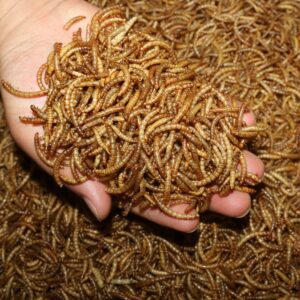To be honest, everybody who owns chickens, reptiles, or wild birds ends up with a mess of mealworm bags stacked in your pantry, refrigerated tubs, or even a wiggling container left out in the garage. But these critters as well as your wallet deserve fresh, mouthwatering, and quite nutritious premiumfeeders Mealworms. Nobody not your hens, bluebirds, beardie gets crazy over stale, wet bugs. Here’s how to master storage and stay away from unwelcome shocks.

Start with this: various techniques apply to dry or live mealworms. Gold for dry mealworms is a sealed bag or hard plastic container. In this scenario, oxygen is the adversary. Air pulls moisture and let fat turn rancid. Shortly after moisture finds its way in, mold and clumping follow. Roll down the top; then, each time squeeze the air out and slap on that lid.
Where should that location of concealment be? Think simple and understated. The back of a closet or cabinet runs perfectly. Skip anywhere garages, sheds, even porches that indicates temperature fluctuations. While dried mealworms last up to a year like this, always check the expiration date and attempt to cycle through your oldest supply first. Nobody likes to pick out a bag of mealworms and discover they have turned into green type hair or dust.
Diet worries you? Dried mealworms offer rich protein and fat even although they can lose certain vitamins over months. If you are providing for extra nutrients, use open bags two or three months. Gut loading is your friend using live mealworms. Feed them meals ranging from carrot to apple to quality grains 24 to 48 hours before feeding them to animals. Your animals so gain from whatever the worms last to eat in extra nutrition.
You have it: a fresh supply produces a content flock, active reptiles, and no drama. Show those mealworms some affection; one gratified peck or gulp at a time will be returned.